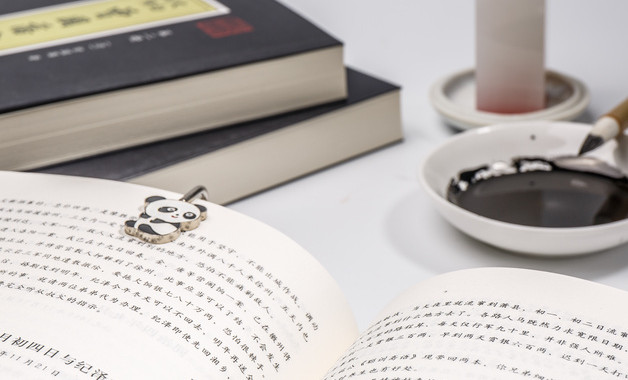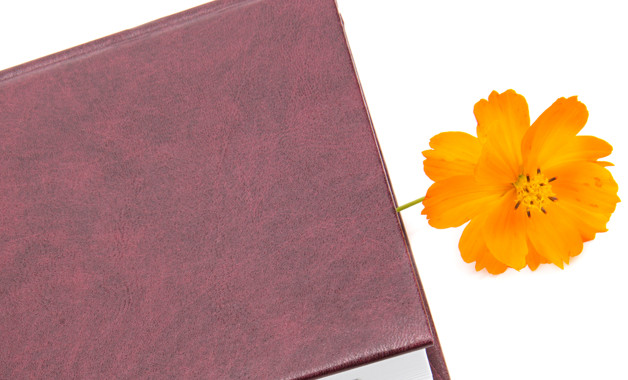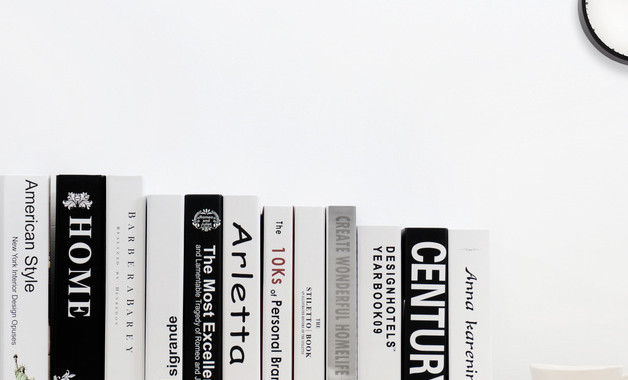代词总结(十篇)

【第1篇 小学小升初英语代词语法总结及习题
人称代词和物主代词
1、人称代词主格和宾格的区别:主格通常位于句中第一个动词之前(有时候位于than 之后),宾格一般位于动词或介词之后。
2、物主代词形容词性与名词性的区别:形容词性用时后面一般要带上名词,名词性则单独使用,后面不带名词。
人称代词 物主代词
主格 宾格 形容词性 名词性
我 i me 我的 my mine
你,你们 you you 你的,你们的 your yours
他 he him 他的 his his
她 she her 她的 her hers
它 it it 它的 its its
我们 we us 我们的 our ours
他(她,它)们 they them 他(她,它)们的 their theirs
练习
一.用所给词的适当形式填空
1. that is not _________ kite. that kite is very small, but _________ is very big. ( i )
2. the dress is _________. give it to _________. ( she )
3. is this _________ watch? (you) no, it's not _________ . ( i )
4. _________ is my brother. _________ name is jack. look! those stamps are _________. ( he )
5. _________ dresses are red. (we) what colour are _________? ( you )
6. here are many dolls, which one is _________ ? ( she )
7. i can find my toy, but where's _________? ( you )
8. show _________ your kite, ok? (they)
9. i have a beautiful cat. _________name is mimi. these cakes are _________. ( it )
10. are these _________ tickets? no, _________ are not _________. _________ aren't here. ( they )
11. shall _________ have a look at that classroom? that is _________ classroom. ( we )
12. _________ is my aunt. do you know _________ job? _________ a nurse. ( she )
13. that is not _________ camera. _________is at home. ( he )
14. where are _________? i can't find _________. let's call _________ parents. ( they )
15. don't touch _________. _________ not a cat, _________ a tiger!
16. _________ sister is ill. please go and get _________. ( she )
17. _________ don't know her name. would you please tell _________. ( we )
18. so many dogs. let's count _________. ( they )
19. i have a lovely brother. _________ is only 3. i like _________ very much. ( he )
20. may i sit beside _________? ( you )
21. look at that desk. those book are on _________. ( it )
22.the girl behind _________ is our friend. (she )
二、用am, is, are 填空
1. i ______ a boy. ______ you a boy? no, i _____ not.
2. the girl______ jack's sister.
3. the dog _______ tall and fat.
4. the man with big eyes _______ a teacher.
5. ______ your brother in the classroom?
6. where _____ your mother? she ______ at home.
7. how _______ your father?
8. mike and liu tao ______ at school.
9. whose dress ______ this?
10. whose socks ______ they?
11. that ______ my red skirt.
12. who ______ i?
13. the jeans ______ on the desk.
14. here ______ a scarf for you.
15. here ______ some sweaters for you.
16. the black gloves ______ for su yang.
17. this pair of gloves ______ for yang ling.
18. the two cups of milk _____ for me.
19. some tea ______ in the glass.
20. gao shan's shirt _______ over there.
21. my sister's name ______nancy.
22. this ______ not wang fang's pencil.
23. ______ david and helen from england?
24. there ______ a girl in the room.
25. there ______ some apples on the tree.
26. _______ there any kites in the classroom?
27. _______ there any apple juice in the bottle?
28. there _______ some bread on the plate.
29. there _______ a boy, two girls, three men and ten women in the park.
30. you, he and i ______ from china.
【第2篇 小学英语语法总结:不定代词及不定副词
不定代词及不定副词
some, any, no, every
-thing: something, anything, nothing, everything
-one: someone, anyone, anything, everyone
-where: somewhere, anywhere, anywhere, everywhere
-body: somebody, anybody, nobody, everybody
例子:
1)i looked for my book everywhere, but i can’t find it anywhere.
2)if you want to go somewhere, if you want to be someone, you must wake up.
3)help! somebody? anybody?
4)you are really something. 你真了不起!(口语中常用 'something'来表示“真像回事儿”,“真行”的意思)
5)since everybody is here, let’s begin our class.
6)where did you go? i went nowhere.
7)nobody is at home.
【第3篇 新概念英语第一册语法总结:不定代词及不定副词
不定代词及不定副词
some, any, no, every
-thing: something, anything, nothing, everything
-one: someone, anyone, anything, everyone
-where: somewhere, anywhere, anywhere, everywhere
-body: somebody, anybody, nobody, everybody
例子:
1)i looked for my book everywhere, but i can’t find it anywhere.
2)if you want to go somewhere, if you want to be someone, you must wake up.
3)help! somebody? anybody?
4)you are really something. 你真了不起!(口语中常用 'something'来表示“真像回事儿”,“真行”的意思)
5)since everybody is here, let’s begin our class.
6)where did you go? i went nowhere.
7)nobody is at home.
【第4篇 初三年级2023英语人称代词知识点总结
a)人称代词有主格和宾语之分:主格用作主语和表语,宾格用作宾语。
如: i like music(主语). she is a teacher. (主语)
she and i are good friends(主语). neither she nor i am student.
--i saw the boys this morning.
--are you sure it was they(表语)?
b) 人称代词的宾格在句子作动词的宾语,或者介词的宾语。
如:i saw him at the party(动词see的宾语).
i haven't seen them recently. (动词see的宾语)
i bought a book for them.(作介词for的宾语)
=i bought them a book.(作介词buy的间接宾语)
☆注意:
a.在口语中,人称代词的主格形式作表语时,常常可以用宾格替换。
如:it can't be he/him.
--is this mr. green?
--yes, this is he/him.
b. 在口语中,当人称代词用于than, as 之后或用于强调句中被强调时,用主格 (较正式) 和宾格 (较口语化) 均可以。
如:
he sings better than i/me. 他比我唱得好。
you know more than she/her.
she is as tall as me (me=i am).
c. 单独使用的人称代词通常用宾格,即使它充当的是主语也是如此。如:
'i like english.' 'me too=i like english too.' '我喜欢英语。''我也喜欢。'
--who did it?
--them.(=they did it)
【第5篇 初中英语代词知识点总结
初中英语代词知识点总结
a) 形容词性物主代词与形容词一起修饰名词时,其顺序是:形容词性物主代词+形容词+名词。如:
my new bike
我的新自行车
her young son 她年幼的儿子
b) 形容词性物主代词所修饰的名词可以是单数,也可以是复数。如:
my pen
我的钢笔
his books
他的书
c) 形容词性物主代词不能单独使用,它后面必须跟名词,即在名词前作定语。
如:
这是我的钢笔.
[误]this pen is my.(错误的.原因:my在此句中单独使用)
[正]this is my pen.
d) 当名词前有形容词性物主代词修饰时,不能再用冠词来修饰名词(注:冠词包括定冠词the和不定冠词a, an两类)。如:
那是我的自行车.
[误]that is my a bike. / that is a bike.
错误原因:不定冠词a和形容词性物主代词my同时出现
[正]that is my bike.
3)当名词前有形容词性物主代词修饰时,不能再用指示代词this, that, these或those来修饰名词。
如:
他们的电脑在这儿。
[误]their those computers are here.(或those their computers are here.)
错误原因:指示代词those和形容词性物主代词there同时出现
[正]their computers are here.
※注意:a) 名词性物主代词后不能跟名词,或代词one。它总是单独出现在句中。
如:the umbrella is mine.(mine=my umbrella)
he likes my pen. he doesn't like hers.(hers=her pen)
b) 名词性物主代词=形容词性物主代词+名词
为避免重复使用名词,有时可用'名词性物主代词'来代替'形容词性物主代词+名词'的形式。
如:my bag is yellow, her bag is red, his bag is blue and your bag is pink.
为避免重复使用bag,可写成my bag is yellow, hers is red, his is blue and yours is pink.
c) 名词性的物主代词在用法上相当于省略了中心名词的 --'s属格结构.
如: jack's cap 意为 the cap is jack's.
his cap 意为 the cap is his.
d) 可以说 a friend of mine (ours, yours, hers, his, theirs),=one of my friends;但是不能说 a friend of me (us, you, her, him, them)这种说法绝对错误。
e) 有时同一个结构用不用物主代词会导致含义的变化。如:
don't lose heart. 别灰心(lose heart:灰心)
she lost her heart to jim. 她爱上了吉姆。(lose one's heart to sb: 爱上某人)
【第6篇 小学小升初英语语法代词总结及习题
人称代词和物主代词
1、人称代词主格和宾格的区别:主格通常位于句中第一个动词之前(有时候位于than 之后),宾格一般位于动词或介词之后。
2、物主代词形容词性与名词性的区别:形容词性用时后面一般要带上名词,名词性则单独使用,后面不带名词。
人称代词 物主代词
主格 宾格 形容词性 名词性
我 i me 我的 my mine
你,你们 you you 你的,你们的 your yours
他 he him 他的 his his
她 she her 她的 her hers
它 it it 它的 its its
我们 we us 我们的 our ours
他(她,它)们 they them 他(她,它)们的 their theirs
练习
一.用所给词的适当形式填空
1. that is not _________ kite. that kite is very small, but _________ is very big. ( i )
2. the dress is _________. give it to _________. ( she )
3. is this _________ watch? (you) no, it's not _________ . ( i )
4. _________ is my brother. _________ name is jack. look! those stamps are _________. ( he )
5. _________ dresses are red. (we) what colour are _________? ( you )
6. here are many dolls, which one is _________ ? ( she )
7. i can find my toy, but where's _________? ( you )
8. show _________ your kite, ok? (they)
9. i have a beautiful cat. _________name is mimi. these cakes are _________. ( it )
10. are these _________ tickets? no, _________ are not _________. _________ aren't here. ( they )
11. shall _________ have a look at that classroom? that is _________ classroom. ( we )
12. _________ is my aunt. do you know _________ job? _________ a nurse. ( she )
13. that is not _________ camera. _________is at home. ( he )
14. where are _________? i can't find _________. let's call _________ parents. ( they )
15. don't touch _________. _________ not a cat, _________ a tiger!
16. _________ sister is ill. please go and get _________. ( she )
17. _________ don't know her name. would you please tell _________. ( we )
18. so many dogs. let's count _________. ( they )
19. i have a lovely brother. _________ is only 3. i like _________ very much. ( he )
20. may i sit beside _________? ( you )
21. look at that desk. those book are on _________. ( it )
22.the girl behind _________ is our friend. (she )
二、用am, is, are 填空
1. i ______ a boy. ______ you a boy? no, i _____ not.
2. the girl______ jack's sister.
3. the dog _______ tall and fat.
4. the man with big eyes _______ a teacher.
5. ______ your brother in the classroom?
6. where _____ your mother? she ______ at home.
7. how _______ your father?
8. mike and liu tao ______ at school.
9. whose dress ______ this?
10. whose socks ______ they?
11. that ______ my red skirt.
12. who ______ i?
13. the jeans ______ on the desk.
14. here ______ a scarf for you.
15. here ______ some sweaters for you.
16. the black gloves ______ for su yang.
17. this pair of gloves ______ for yang ling.
18. the two cups of milk _____ for me.
19. some tea ______ in the glass.
20. gao shan's shirt _______ over there.
21. my sister's name ______nancy.
22. this ______ not wang fang's pencil.
23. ______ david and helen from england?
24. there ______ a girl in the room.
25. there ______ some apples on the tree.
26. _______ there any kites in the classroom?
27. _______ there any apple juice in the bottle?
28. there _______ some bread on the plate.
29. there _______ a boy, two girls, three men and ten women in the park.
30. you, he and i ______ from china.
【第7篇 2023中考英语知识点总结:代词
代词(pron.)代替名词,兼有名词和形容词的作用
(一)代词的类别
相互代词 each other,one another
指示代词 this,that,these,those
不定代词(不指明特定的人或事物的代词)each,every,both,all,either,neither,none,no,one,(a)few,(a)little,some,any,many,much,other,another
复合不定代词everybody,somebody,anybody,nobody,everyone,someone,anyone,no one,every-
【第8篇 小学英语语法知识点总结:代词
a、人称代词和物主代词
1、人称代词主格和宾格的区别:主格通常位于句中第一个动词之前(有时候位于than 之后),宾格一般位于动词或介词之后。
2、物主代词形容词性与名词性的区别:形容词性用时后面一般要带上名词,名词性则单独使用,后面不带名词。
人称代词 物主代词
主格 宾格 形容词性 名词性
我 i me 我的 my mine
你,你们 you you 你(们)的, your yours
他 he him 他的 his his
她 she her 她的 her hers
它 it it 它的 its its
我们 we us 我们的 our ours
他们 they them 他们的 their theirs
b、不定代词some 与 any
some和any都有'一些'的含义,都能修饰可数名词和不可数名词,但 some 一般用在肯定句中。
如: there are some girls in the classroom.
some有时也用于疑问句,表示期望得到肯定回答,并不表示对某事有疑问。
如: can i ask you some questions ?
any一般用于疑问句和否定句中。
如: are there any maps on the wall? 墙上有地图吗?
there aren't any trees behind the house. 房子后面没有树。
【第9篇 常见借代词语总结
1、 桑梓:家乡
2、桃李:学生
3、 社稷、轩辕:国家
4、南冠:囚犯
5、 同窗:同学
6、 烽烟:战争
7、巾帼:妇女
8、丝竹:音乐
9、须眉:男子
10、婵娟、嫦娥:月亮
11、手足:兄弟
12、汗青:史册
13、伉俪:夫妻
14、白丁、布衣:百姓
15、伛偻,黄发:老人
16、桑麻:农事
17、提携,垂髫:小孩
18、三尺:法律
19、膝下:父母
20、华盖:运气
21、函、简、笺、鸿雁、札:书信
22、庙堂:朝廷
【第10篇 关系代词的用法知识点总结
关系代词的用法知识点总结范例
(1)如果先行词是all,much,anything,something,nothing,everything,little,none等不定代词,关系代词一般只用that,不用which。例如:
allthepeoplethatarepresentburstintotears.
(2)如果先等词被形容词最高级以及first,last,any,only,few,mush,no,some,very等词修饰,关系代词常用that,不用which,who,或whom。例如:
(3)非限制性定语从句中,不能用关系代词that,作宾语用的关系代词也不能省略。例如:
thereareaboutsevenmillionpeopletakingpartintheelection,mostofwhom、arewelleducated.
(4)which还有一种特殊用法,它可以引导从句修饰前面的整个主句,代替主句所表示的整体概念或部分概念。在这种从句中,which可以作主语,也可以作宾语或表语,多数情况下意思是与andthis相似,并可以指人。例如:
hesucceededinthecompetition,whichmadehisparentsveryhappy.
(5)that可指人或物,在从句中作表语,(指人作主语时多用who)仅用于限制性定语从句中。
(6)which可作表语,既可指人,以可指物。指人时,一般指从事某种职业或是有种特征.品性或才能的人。which引导的定语从句可以限制性的,也可以是非限制性的。
(7)如果作先作词的集体名词着眼于集体的'整体,关系代词用which;若是指集体中的各个成员,则用who。
(8)先行词有两个,一个指人,一个指物,关系代词应该用that。例如:
theboyandthedogthatareinthepictureareverylovely.
(9)如果先行词是anyone,anybody,everyone,everybody,someone,somebody,关系代词应该用who或whom,不用which。例如:
isthereanyoneherewhowillgowithyou?
3.'介词+关系代词'是一个普遍使用的结构
(1)'介词+关系代词'可以引导限制性定语从句,也可以引导非限制性定语从句。'介词+关系代词'结构中的介词可以是in,on,about,from,for,with,toat,of,without等,关系代词只可用whom或which,不可用that。
(2)fromwhere为'介词+关系副词'结构,但也可以引导定语从句。例如:
westoodatthetopofthehill,fromwherewecanseethetown..
(3)像listento,lookat,dependon,payattentionto,takecareof等固定短语动词,在定语从句中一般不宜将介词与动词分开。例如:
thisistheboywhomshehastakencareof.
相关总结
-
95位用户关注
最新加入范文
-
22位用户关注
-
68位用户关注
-
42位用户关注
-
63位用户关注
-
60位用户关注
-
69位用户关注





